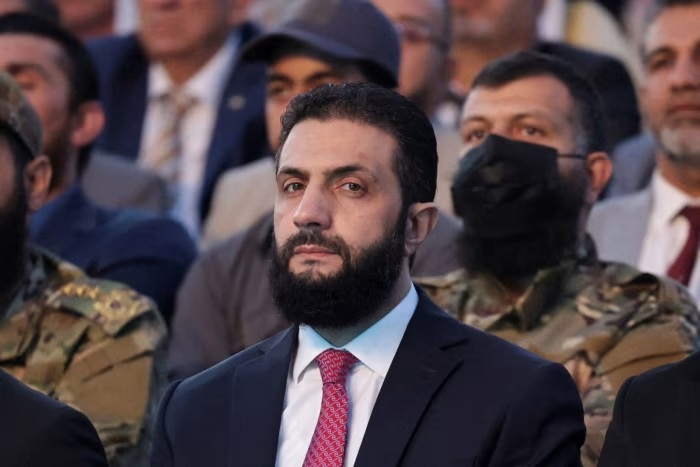The security landscape in southern Syria shifted dramatically this week as government troops began to withdraw from Sweida province, following days of deadly clashes and a powerful escalation in Israeli air strikes.
President Ahmed al-Sharaa, the country’s new leader, framed the withdrawal as a calculated move to restore calm and prevent further chaos.
All of these, amidst mounting pressure from both internal unrest and external attack.
Sharaa’s televised address in the early hours of Thursday marked a critical turning point.
He denounced Israel’s actions, accusing the neighboring state of deliberately fueling chaos in Syria.
According to Sharaa, Israel aims to plunge the country into enduring instability, forcing Damascus to make a fateful choice.
According to him, it is a choice either to confront Israel through open armed conflict or hand over local security in Sweida to the province’s Druze factions.
“We are not those who fear war,” Sharaa boldly declared on state television, “but we have chosen to put the interests of the Syrian people above chaos and destruction.”
He emphasized that the government’s withdrawal was made in service of national unity and to protect citizens, underlining the importance of prioritizing the broader stability of Syria during a period of acute fragmentation.
Immediate Causes and Sequence of Events
The government’s pullout came amid intensifying violence that began earlier in the week. Tensions flared when clashes erupted between Druze militias, long a dominant force in Sweida, and rival Bedouin tribes.
As government reinforcements poured into the area, they became entangled in the conflict, leading to devastating casualties and widespread rights abuses.
Against this backdrop of escalating local violence, Israel ramped up its campaign against Syrian military positions.
Overnight, Israeli warplanes targeted the defense ministry in central Damascus and hit a location near the presidential palace, with Syrian officials reporting at least three fatalities.
Israel justified these strikes by citing the need to protect the Druze population in southern Syria and to guarantee the region bordering Israel remains free of substantial Syrian military presence.
Struggle for Stability and the Druze Factor
The current turmoil is testing Sharaa’s ability to unify and govern a state only recently emerging from the shadow of Bashar al-Assad’s long rule.
Druze militias have resisted government efforts to integrate them into Syria’s new national security forces, holding onto their autonomy in Sweida and refusing to cede control to central authorities.
This stalemate has left a security vacuum in the south, one that outside forces, particularly Israel, have sought to exploit.
In his speech, Sharaa tried to reassure the Druze community by explicitly stating their vital role in Syria’s fabric.
He affirmed that safeguarding Druze rights and freedoms was a key government commitment and announced a plan to assign local factions and religious leaders direct responsibility for security in Sweida.
This pivot appears aimed at reducing friction while preventing renewed violence, at least in the near term.
Ceasefires and Foreign Involvement
In light of the violence, the Syrian government hurriedly declared a ceasefire in Sweida on Wednesday, after an earlier one faltered.
As of Thursday morning, this truce was still in place, though the situation remained tense.
Activists recounted scenes of devastation in the city, blaming both government and Druze militia forces for grave violations and civilian casualties.
Meanwhile, Israel has continued to exploit instability, extending its control over strategic areas in southern Syria and carrying out repeated strikes against military targets, further entrenching the state of conflict.
Diplomatic Pressure and International Response
The crises unfolding in Sweida have reverberated far beyond Syria’s borders.
Arab and Turkish authorities have condemned Israel’s strikes, arguing that such interventions undermine fragile efforts to stabilize Syria following more than a decade of brutal civil war.
Amid these developments, the current U.S. administration, having recognized Sharaa’s government and ended sanctions dating from the Assad era, stepped in to mediate.
U.S. Secretary of State Marco Rubio voiced deep concern over the violence and committed Washington to brokering peace.
In a social media announcement, he said all parties had made promises to end hostilities and insisted on accountability for their actions.
Conclusion
The crisis in Sweida underscores the persistent volatility plaguing post-war Syria.
This is a government struggling for legitimacy, powerful local militias resisting central control, foreign powers pursuing regional agendas, and everyday Syrians trapped in the crossfire.
As President Sharaa withdraws his forces in hopes of restoring stability, only time will tell if this delicate truce can hold, or if the province will again be drawn into devastating conflict.







